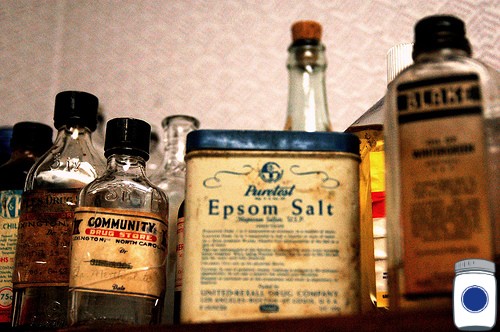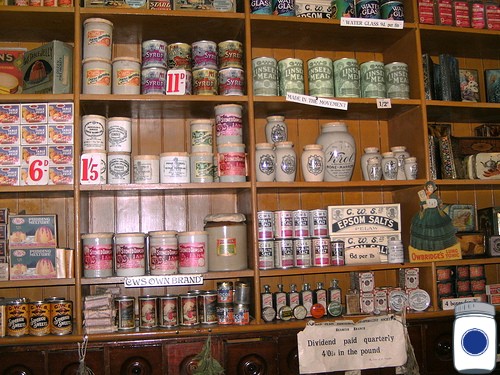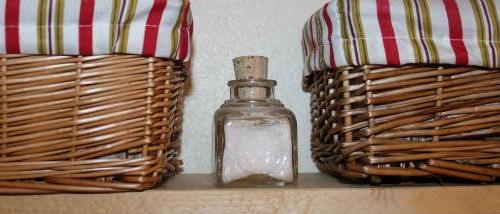What is Epsom Salt
Is it really a salt and how can I use it around the homestead?
So among the list of things that you should have on hand around the old homestead, does Epsom salt appear on your list anywhere? What is Epsom salt anyway—is it really even a salt? Technically no, and like other kitchen nomenclature such as “sour salts” (which is really an acid) it is not even a salt at all.

If you were to do an internet search for “use of Epsom salt” you are likely to come up with a host of uses; everything from beauty, to bathing, to gardening, to curing digestive maladies and even arts and crafts applications. What is in Epsom salt is what makes it truly useful. If it really were a salt, then why would you put it on your garden?
Going by the handy name Magnesium Sulfate Heptahydrate (or MgSO4 + 7H2O) it does not fall under the chemical class of salts. Chemically speaking in the hustle and bustle of electron swapping, salts are ionic compounds that are produced when an acid and a base react together. Note that it is a sulfate not a sulfite which is different. And if that just is not nerdy enough for you, watch this video about the predictability of ionic compounds and the periodic table of elements:
We now know that it is not really a salt, so who/where is Epsom and how did he/she get to name it?
Epsom salt, named for a bitter saline spring at Epsom in Surrey, England, is not actually salt but a naturally occurring pure mineral compound of magnesium and sulfate. Long known as a natural remedy for a number of ailments, Epsom salt has numerous health benefits as well as many beauty, household and gardening-related uses (Salt Works, 2013).
For us here at Pantry Paratus, we do keep Epsom salt on hand because it is so handy for a short list of applications that we need. Although it is not likely that I will ever need it for its alleged hair volumizing properties, Epsom salt was helpful when starting the GAPS diet; we all routinely took an Epsom salt bath to help “purify” the system. I saw only one reference to a reasonably short shelf life (4-5 years), but since it is a chemical compound found in nature then it probably will store quite well if protected from moisture.

What is in Epsom Salt? It contains both sulfur and magnesium. It is interesting to note that both of these appear on the list of what Sally Fallon Morell calls the seven macrominerals: “Calcium, chloride, magnesium, phosphorus, potassium, sodium and sulphur [sic]” (Fallon & Enig, p. 40). Regarding many citations on the internet for the benefits of repeated Epsom salt application on a garden, I find it very difficult to believe that you would intentionally put that in your soil repeatedly. The reason why—despite the necessary effects of sulfur on the cell wall of plants and the uptake of nutrients on the cellular level in animals, it is not something that you want to have in bulk in your soil. And I get this on good authority: this past summer, I had the great pleasure to interview a very smart father-and-son team on their family farm, who explained the “all you ever wanted to know about soil chemistry but were afraid to ask” in a very succinct dose as part of a great interview.
Lest there be any runs on local stores for Epsom salt, when it comes to the use of Epsom salt I must be fair to warn you that it does have its detractors. Nevertheless, if you keep it amongst your homestead supplies then know that you are in very good company with a lot of “old wives” who tell tales—evidently the word got passed around for some reason. For example, we have at least four “natural remedies” books that list it by name along with potential uses in an Epsom salt bath to aid in things like bee stings to swollen joints. I will let you make your own call, but as for us it sits happily in the jar on the bathroom shelf.

Pro Deo et Patria,
Wilson
Works Cited:
Salt Works. (2013). Epsom salt uses & benefits. Retrieved from http://www.saltworks.us/salt_info/epsom-uses-benefits.asp
Fallon, S., & Enig, M. (2001). Nourishing traditions. (p. 40). Washington DC: Newtrends.
Photo Credits:
Epsom salt Bath:friskierisky via photopin cc
What is in Epsom salt:mbtphoto (away a lot) via photopin cc
Further Reading:
http://www.treehugger.com/health/8-uses-epsom-salt.html
http://saveyourself.ca/articles/reality-checks/epsom-salts.php
http://www.saltworks.us/salt_info/epsom-uses-benefits.asp
http://www.epsomsaltcouncil.org/about/
Proviso:
Nothing in this blog constitutes medical advice. You should consult your own physician before making any dietary changes. Statements in this blog may or may not be congruent with current USDA or FDA guidance.
